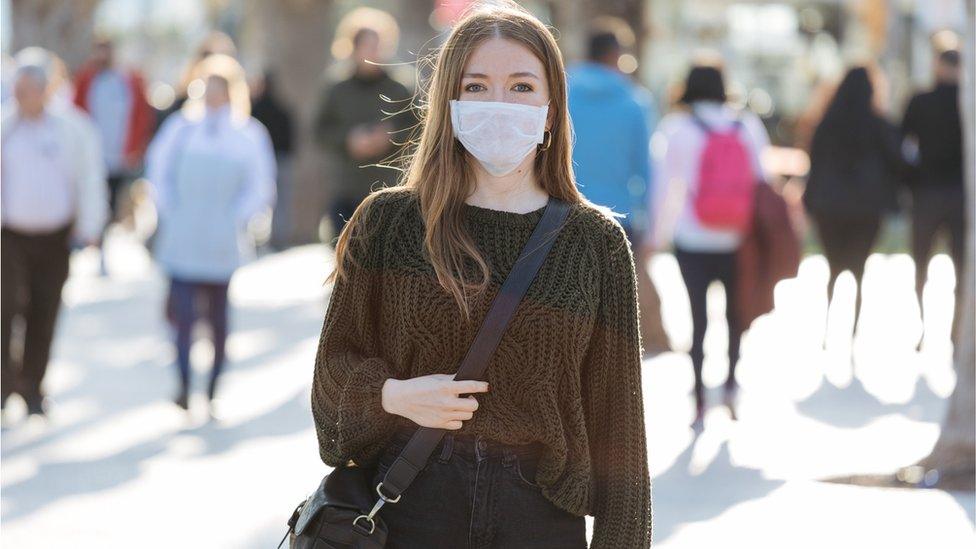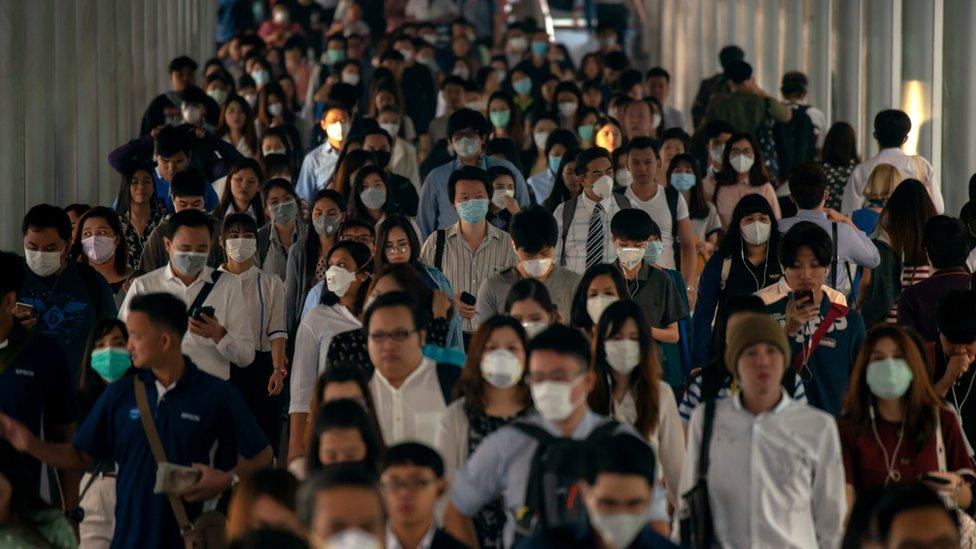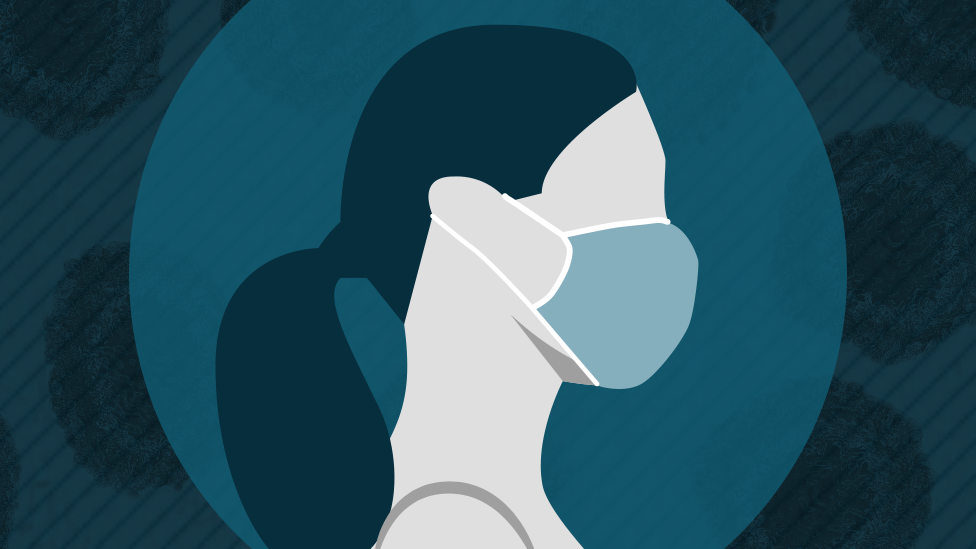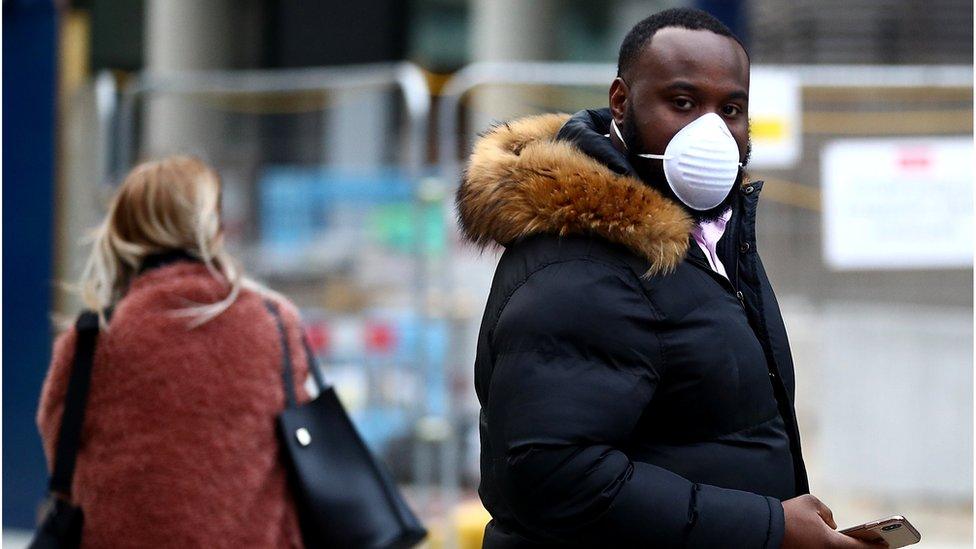Coronavirus: Why isn't Scotland advising the use of face masks?
- Published

New York has become the latest place to issue advice on face masks - they are not compulsory in Scotland
With the protocol on wearing face masks varying from country to country, advice from officials has become conflicting.
New York has become the latest place to call on its citizens to cover their faces outside.
At the same time, US coronavirus taskforce co-ordinator Dr Deborah Birx raised concerns that the masks give people a "false sense of protection".
What is the advice in Scotland?
You may well see people wearing masks or face coverings while out walking or in supermarkets - but there has been no official advice to do so.
In fact, the Scottish government's national clinical director has said there is "no evidence" to support members of the public wearing protective face masks.
Prof Jason Leitch said masks should be worn by healthcare workers and people who have coronavirus.

Many people in south-east Asia choose to wear face masks in public
But he said because Covid-19 was spread by droplets rather than through the air, hand-washing and social distancing were more effective for everyone else.
He said "The global evidence is masks in the general population don't work."
Prof Leitch previously told the BBC's Good Morning Scotland programme: "People don't wear them properly, they're hard, they're difficult, they're uncomfortable. Masks are not fun."
Why don't they work for the general population?
Coronavirus is spread by droplets that can spray into the air when those infected talk, cough and sneeze.
These can enter the body through the eyes, nose and mouth, either directly or after touching a contaminated object.
If people carrying the virus wear masks, these droplets may be curtailed.
Prof Leitch said that face coverings were helpful for health care workers as they are in close contact with infectious patients.
However he suggested the Scottish government would not advise the general population to wear masks.
He said: "There is a cultural tradition in Asia to do it. That is principally because they have had airborne viruses in the past.
"This virus is not airborne - it has to be spread by droplets - hence the social distancing, the hand-washing.
"All of that is about keeping the droplets away from person-to-person spread.
"If this were in the air then the instructions would be very different, but it's not - so masks in the general population are not helpful."
Is there global advice?
General use of masks became increasingly common in Asia following the Sars outbreak in 2002. Now authorities in China are enforcing their use, particularly in areas of dense population such as Wuhan or Beijing.
They are also compulsory in the Czech Republic and Slovakia.
Previously people the US could go outside bare-faced, but on Thursday New Yorkers were given the instruction to wear masks as it would "help prevent them from spreading Covid-19 to other people".
Los Angeles has issued similar advice, however the federal government has not yet made recommendations for the entire nation.
Since the start of the coronavirus outbreak, the official advice from the World Health Organization, external has been clear.
Only two types of people should wear masks: those who are sick and show symptoms, and those who are caring for people who are suspected to have the coronavirus.

A SIMPLE GUIDE: How do I protect myself?
AVOIDING CONTACT: The rules on self-isolation and exercise
LOOK-UP TOOL: Check cases in your area
MAPS AND CHARTS: Visual guide to the outbreak
VIDEO: The 20-second hand wash

- Published16 March 2022

- Published2 April 2020
